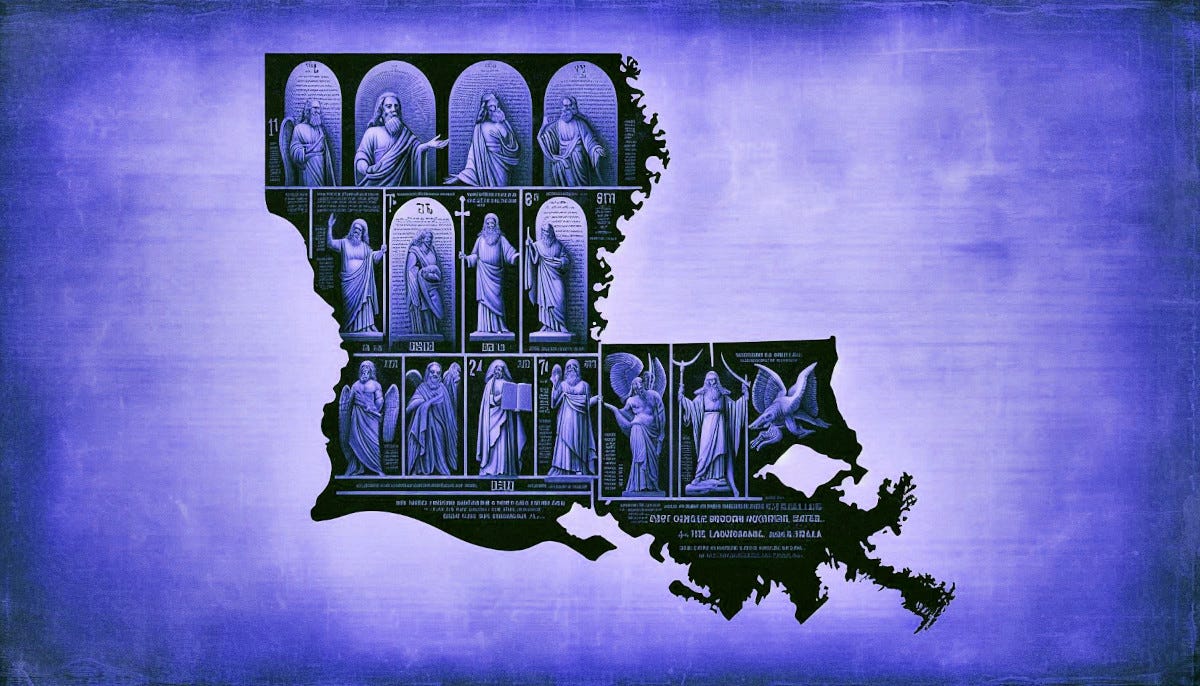Federal appeals court finds Louisiana’s Ten Commandments law unconstitutional
Update: ACLU and other groups file lawsuits for parents in Arkansas and Texas
A 2024 Louisiana law requiring the posting of an abridged version the Ten Commandments in public-school classrooms is unconstitutional because it violates the Establishment Clause of the First Amendment, a panel from the Fifth U.S. Circuit Court of Appeals unanimously ruled Friday.
Louisiana school officials told news media aft…



